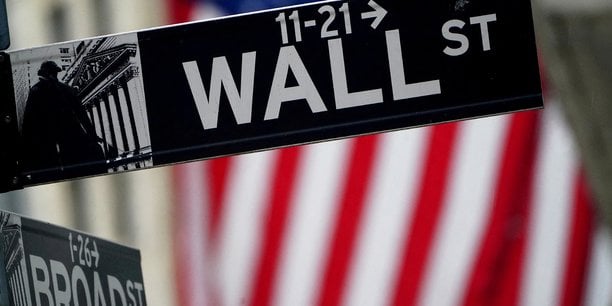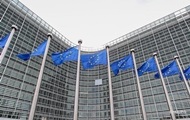[Article mis à jour vendredi 17 juin, à 12h45]
Every day, global monetary policy tightens a little more. The world’s central banks keep announcing new rate hikes in an attempt to stop runaway inflation. This is the case recently of the Bank of England (BoE) which announced on Thursday a fifth consecutive increase in its key rate in the face of a rise in inflation prices which, according to it, should exceed 11% this fall. Similarly, the Swiss central bank also raised its key rate on Thursday, for the first time since 2015. Not to mention the Fed, the American central bank, which once again raised its rates on Wednesday. This increase of three-quarters of a point is the strongest since 1994. Finally, on the side of the European Central Bank, its governors announced on 9 June their “intention to raise policy rates by 25 basis points at the July meeting” then again in September.
So many announcements that plunged the world stock markets on Thursday at the opening. But after the cold snap, the European indices recovered at midday, the CAC 40 was up +1.21%, Frankfurt +1%, Milan +1.66%, and London +0.86% . The day before, the anxiety was nevertheless still present, closing all in the red.
On Wall Street, the Dow Jones ended down 2.42%, plunging below 30,000 points for the first time since January 2021, while the Nasdaq index fell 4.08% and the broader S&P 500 index, 3.25%. For their part, the Chinese stock markets were down slightly this Friday at the opening. In early trading in Hong Kong, the Hang Seng index lost 0.67% to 20,705.21 points. The composite index of the Shanghai Stock Exchange fell 0.40% to 3,272.25, while the Shenzhen market fell 0.82% to 2,089.51.
Anxiety of a recession
“With the Fed’s balance sheet reduction (started in June) and markets expecting another 0.75 percentage point hike at the next Fed meeting,” operators wonder “if the Fed isn’t going astray”, and to go too fast and too hard in its monetary tightening, commented Quincy Krosby, of LPL Financial. ” When people think about the impact that the simultaneous movement of all central banks could have” towards a general tightening, “ they say to themselves: I still have profits to take, let’s go »and start selling, explained Maris Ogg, portfolio manager for Tower Bridge Advisors.
Because the central banks are anticipating the main risk posed by an excessive rise in rates for the economy: that of a recession. In the United States, the American economy has already slowed with a contraction of 1.5% of GDP in the first quarter. The start of the second quarter seems to show that the slowdown is continuing in certain sectors such as manufacturing, real estate and retail sales.
“The chances of a recession in 2023 increase because it may be necessary to control inflation”, according to Joseph Gagnon, an economist at the Peterson Institute for International Economics (PIIE), and former Fed economist, in a note. ” Let it be clear, we are not trying to induce a recession,” nevertheless assured Fed Chairman Jerome Powell: “we are trying to bring inflation down to 2%, (and keep) a strong labor market”.
Risk of fragmentation in Europe
Another consequence of a tightening of monetary policy, the ECB’s announcements worried investors, causing the sovereign debt of certain countries, including Italy, to rise. The tension was nevertheless somewhat relaxed on Thursday, compared to the beginning of the week thanks to the announcements of the European monetary institution. The latter has, in fact, instructed its teams “to speed up” the design of a new instrument anti-fragmentation » to combat an excessive spread of interest rates between northern and southern countries of the euro zone. German Finance Minister Christian Lindner said on Thursday that there was no “no reason to worry about interest rate differentials in Europe”.
Finally, these rate variations also had effects on the tech sector, which is particularly dependent on interest rates to finance its growth. In New York, tech giants led the market decline, from Meta (-5.01%) to Apple (-3.97%), via Microsoft (-2.70%) and Alphabet (-3, 40%). In Paris, STMicroelectronics lost 6.19% and Dassault Systèmes 2.50%. Deliveroo dropped 6.19% in London.
Energy stocks penalized by gas reductions in Europe
Concerning the values of the energy sector, it is the successive announcements of lower deliveries of Russian gas by Gazprom in recent days and in particular on Thursday, which have caused them to fall. “Our product, our rules. We don’t play by rules we didn’t make,” thus argued the boss of the Russian gas giant, Alexei Miller. “Russia is a reliable energy supplier for friends of Russia”he added.
In Frankfurt, Uniper lost 9.73% and Siemens Energy 3%. In Paris, Engie fell 7.29% after seeing a “ reduction in deliveries »even if it was without impact on supply » client. Eni, which announced that Gazprom would only deliver 65% of the requested quantities on Thursday, also fell 4.89% in Milan while Enel lost 2.81%.
As for international currencies, after a gloomy start to the session, the euro and the pound recovered against the dollar, the single currency gaining 1.03% to 1.0552 dollars, while the pound rose frankly by 1.39% at $1.2350.
As for bitcoin, it took 5.11% to 20,754 dollars. The price of a barrel of Brent from the North Sea gained 1.09% to 119.81 dollars and that of a barrel of American WTI gained 1.96% to 117.58 dollars.
–


